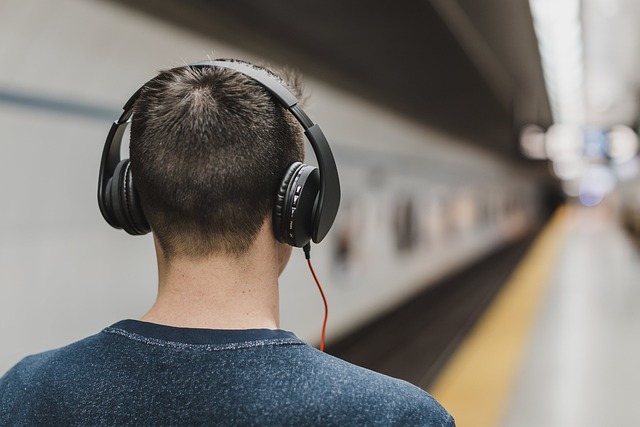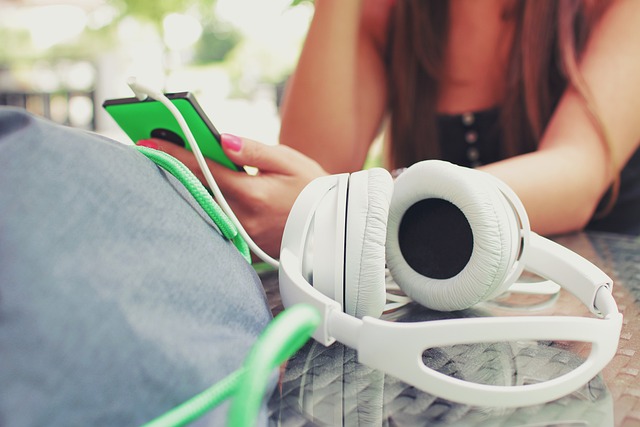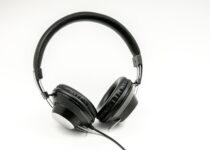How to sleep with headphones?
If you’re anything like me, you spend a lot of time listening to music or podcasts when you’re trying to sleep. But sometimes it’s hard to block out the noise from the world around you.

Wouldn’t it be great if there was a way to sleep with headphones and still be able to hear what’s going on outside? Luckily, there is!
In this article, we’re going to show you how to sleep with headphones and still be able to hear what’s going on around you. We’ll also discuss some tips for choosing the right headphones for sleeping, and give you a few examples of different types of sleeping headphones. So read on, and let us help you get a good night’s sleep!
Why Would You Want to Sleep with Headphones?
There are many benefits to sleeping with headphones. It can help you fall asleep faster, stay asleep longer, and drown out distractions.
One study found that people who listen to music or audiobooks before bed tend to get a more restful night’s sleep than those who don’t.
This is likely because listening to calming sounds before bed helps you relax and fall asleep more easily. Plus, studies have also found that music has a positive effect on our moods and can help us destress.
If you’re having trouble falling asleep or staying asleep, wearing headphones may be the solution for you.
By eliminating all other noise sources in your environment, you may find that you are able to drift off to sleep much more quickly and easily. If you’re struggling with insomnia, it’s definitely worth giving this sleep hack a try!
-
Relaxation
There are a few reasons why people might want to sleep with headphones on. One reason is that they can relax and de-stress. Sleeping with headphones can help you fall asleep faster and get a better night’s sleep.
It can also help reduce anxiety and stress levels, which can in turn improve your overall health. Additionally, listening to music or podcasts while you sleep can help you stay alert and motivated throughout the night.
Finally, some people find that they enjoy sleeping with headphones because it blocks out noise from other parts of the house.
This can help you get a better night’s sleep without being disturbed by family or roommates.
-
Happy brain chemicals
When you sleep with headphones on, you’re allowing your brain to produce a very specific type of energy. This type of energy is called “eudaimonic Energy.” Eudaimonic Energy is your brain’s natural way of promoting happiness and calmness.
By allowing your brain to produce this type of energy, you’re helping yourself relax and fall asleep faster.
Additionally, by listening to calming music or sounds while you sleep, you’re increasing the likelihood that you’ll have a restful night’s sleep.
-
Distraction-free nighttime environment
If you’re looking for a way to get a good night’s sleep, wearing headphones might be the solution for you. Sleeping with headphones can create a distraction-free nighttime environment, which can help you get more restful sleep.
Additionally, using headphones during the day can keep you from being tempted by other noises and stimuli.
How to Sleep with Headphones – the 3 Easiest Ways
Now take a look at some easy ways to sleep with headphones even if you don’t feel comfortable.
-
Get a pillow that makes headphone listening easy
If you want to sleep with headphones, there are a few things that you can do. First, make sure that your pillow is comfortable. Second, find a pair of headphones that works well with your pillow. Third, make sure that you have enough room on your bed so that you can lay down comfortably with the headphones in place. Finally, make sure that the volume is low enough so that it won’t disturb others in the bedroom.
The Original Pillow With a Hole
If you sleep with headphones on, there are a few ways to make sure they don’t fall off. The best way is to use a pillow with a hole. This way, the headphones will be held in place by the hole and not slide off during the night. Another option is to use an elastic band to keep the headphones in place.
Travel Pillow
Travel pillows are a great way to sleep when you’re on the road. They’re small and light, so they don’t take up much space in your bag. And they usually have a strap so you can attach them to the bed or chair.
Here are four ways to use a travel pillow:
- Use it as a regular pillow. If you’re travelling with just one pillow, put it in your luggage and use it as your regular pillow. This is the easiest way to use a travel pillow because you don’t need any special equipment or knowledge.
- Use it as an extra headrest. If you’re flying, for example, and want to be sure you get good sleep during your flight, try using your travel pillow as an extra headrest on your plane seat. This will keep your neck from getting tired and crick while you’re sleeping.
- Use it as a lap pillow. When you’re sitting in an airport or on a train, try using your travel pillow as a lap pillow instead of buying another one of those expensive lap chairs that take up space in your luggage. You can also use it this way at home if you have a couch that’s big enough to fit it.
- Use it as an ottoman cushion for sleeping on the floor. If you’re traveling and want to be able to sleep on the floor without buying another bed, try using your travel pillow as an ott
-
Get headphones that make sleep easier
If you’re a headphone lover and want to sleep better, here are some tips that can help.
1. Get headphones that make sleeping easier. The best way to sleep with headphones is to get ones that have good noise-cancellation features. This will help reduce the amount of noise that reaches your ears and keeps you from being disturbed during restful slumber.
2. Avoid putting them in your ears at night. Putting headphones in your ears can result in fatigue and disrupted sleep because it increases the pressure inside your ear drums. Instead, try placing them on your pillow or lap so they are close to your head but not touching it. This way, the sound will be transmitted directly into your ears and you’ll get the most out of the headphones’ sound quality and noise cancellation abilities.
3. Use them for short periods of time before bedtime. If you use headphones while you’re awake, it’s OK to use them before bed as long as you aren’t listening to loud music or podcasts that are intended for extended periods of time. Otherwise, taking a few minutes to wind down before bedtime by listening to calming tunes using headphones can help get you ready for a restful night’s sleep.
Headband headphones
If you’re looking for a stylish way to keep your headphones close at hand, a headband is the perfect solution. Headband headphones are lightweight and comfortable, and they can be worn in a variety of ways so that you can find the perfect fit.
You can also choose headband headphones that have volume control and microphone so that you can take phone calls without having to remove your headphones.
Whatever style of music you enjoy, there’s likely a headband headphone that will fit your needs.
low profile headphones:
There are different ways to sleep with headphones, and the easiest way is to use low-profile earphones. This will ensure that your headphones don’t get in the way while you sleep, and they will also be less noticeable.
You can also choose to use noise-cancelling headphones if you want to block out sound completely.
True wireless headphones:
No matter what your sleep habits are, there are some great true wireless headphones out there that make it easy and convenient to stay plugged in while you’re sleeping.
These headphones come with sensors that will automatically stop playing music or videos when you fall asleep, which means that you won’t have to worry about waking up to an annoying noise.
Some of the best true wireless headphones on the market include the Bose QuietComfort 25 Acoustic Noise Cancelling Headphones and the Sony WH-1000XM2 Wireless Headphones.
Both of these models come with amazing sound quality and feature adjustable ear cups that will ensure a comfortable fit for everyone.
They also have built-in microphones that allow you to take phone calls without having to remove the headphones, which is great if you need to get up early for work.
-
Sleep in a different position
If you want to sleep with headphones on, there are a few different ways to go about it. Some people like to sleep in a different position each night, in order to find which one gives them the best results.
Others like to adjust the volume on their headphones so that they can fall asleep comfortably without having to worry about waking up from noise.
Regardless of how you choose to sleep with headphones – be it by changing positions or adjusting the volume – make sure that you’re doing it in a way that is comfortable for you.
What Are the Disadvantages of Sleeping with Headphones On?

-
Wax buildup
There are a few disadvantages to sleeping with headphones on, and one of the biggest is wax buildup. When you’re constantly blocking out ambient noise with music or podcasts, your ears start to produce more wax in order to block out the noises that are trying to get through.
This buildup can cause ringing in your ears and even permanent damage if left untreated. Additionally, headphone use can lead to a lowered tone of voice because it blocks out external sounds that would otherwise help you communicate effectively.
If you’re looking to improve your sleep habits or simply want to sound better in the morning, try removing your headphones before bed so you can hear what’s going on around you and avoid any potential problems.
-
Otitis externa
There are a few disadvantages to sleeping with headphones on. The most common one is that you may develop Otitis externa, or external ear infection. This is caused by the accumulation of bacteria and fluid in the ear canals.
The more you listen to music or audio books, the more likely you are to develop this condition. Other potential downsides include fatigue and hearing loss.
If you’re sleep deprived or have a cold, your immune system is less effective and you’re more likely to get sick.
Finally, if you don’t take care of your ears, they may become permanently damaged.
To avoid any of these problems, it’s important to keep your headphones at a comfortable distance from your ears while you’re sleeping and to clean them regularly.
-
Necrosis, or the death of tissue cells
There are a few potential disadvantages to sleeping with headphones on. First and foremost, it can lead to necrosis or the death of tissue cells.
This can cause temporary or permanent hearing loss as well as other health complications.
Additionally, listening to music or other audio content late at night may disrupt your sleep cycle and create unhealthy habits that you may not be able to break later on.
If you’re worried about any of these potential downsides, it’s always best to take the headphones off before bed.



